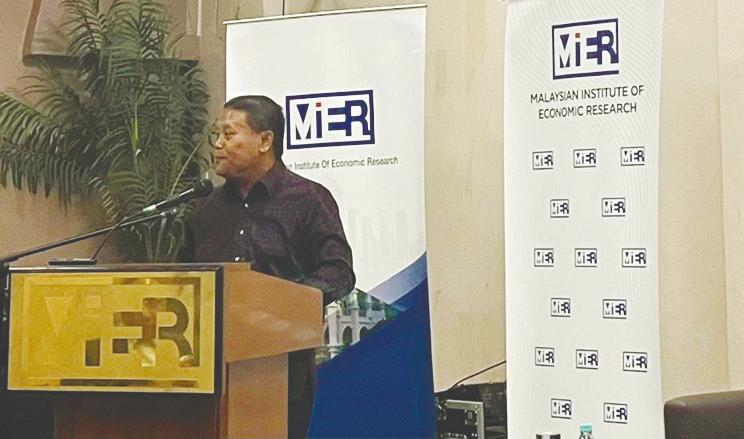KUALA LUMPUR: Malaysia is in talks with China on rare earth (RE) cooperation to expand local refining capacity, following the government’s ban on unprocessed exports.
Ministry of Economy secretary-general Datuk Nor Azmie Diron said discussions with Beijing are difficult, as China’s policy is to only import raw materials and not allow its processing plants or technology to be transferred abroad.
“The issue with RE is the technology, it is held by China,” he said at the Malaysian Institute of Economic Research (MIER) Brown Bag Talk titled “RMK13: Policy Empowerment to Sustain Economic Growth” today.
Nor Azmie was responding to a participant’s concern over Malaysia’s reliance on exporting raw materials such as bauxite instead of processing them locally, where value-added products such as aluminium can generate higher returns.
He stressed that Malaysia has already adopted a policy to halt the export of both bauxite and rare earths.
“Of course, currently, we are put on hold on exporting the raw material. Be it bauxite, be it RE.”
Nor Azmie explained that Malaysia seeks to balance cooperation between Australia’s Lynas, which is already operating in the country, and potential collaboration with China.
“Our intention is to have both. Australia, which we regard as Western, but the China part also we need to have in Malaysia.”
Malaysia’s vast rare earth deposits are estimated to be worth over US$200 billion (RM844 billion), but the country lacks the technology to process them.
Last month, Malaysia imposed a ban on the export of unprocessed rare earths.
Investment, Trade and Industry Minister Tengku Datuk Seri Zafrul Abdul Aziz said the government wants international firms to invest in downstream processing within Malaysia instead of shipping raw materials abroad.
He said the government is positioning Malaysia as a processing hub rather than a raw material supplier.
Tengku Zafrul said Australia’s Lynas Rare Earths, which processes rare earth in Gebeng, Pahang and mining in Gua Musang, Kelantan, is one of the players currently allowed to export from Malaysia under the new rules that permit exports after processing.
Rare earths are vital for electric vehicles, renewable energy technologies and electronics, with China dominating the global supply chain.
Although China produces about 70% of mined output, Beijing controls nearly 90% of global processing, holding a near-monopoly through its refining and separation technology, which it does not export.
According to the US Geological Survey, the United States sourced 70% of its rare earth imports from China in 2024, followed by 13% from Malaysia, 6% from Japan and 5% from Estonia. Some supplies from outside China were still derived from concentrates that had been processed in China and Australia.









